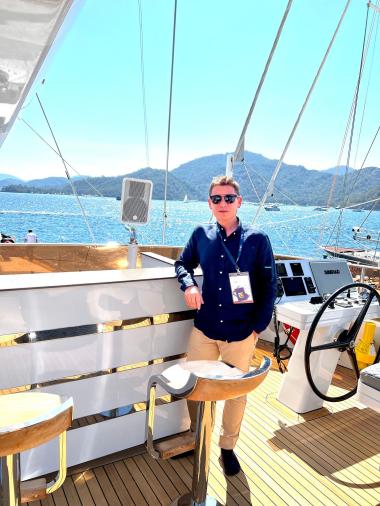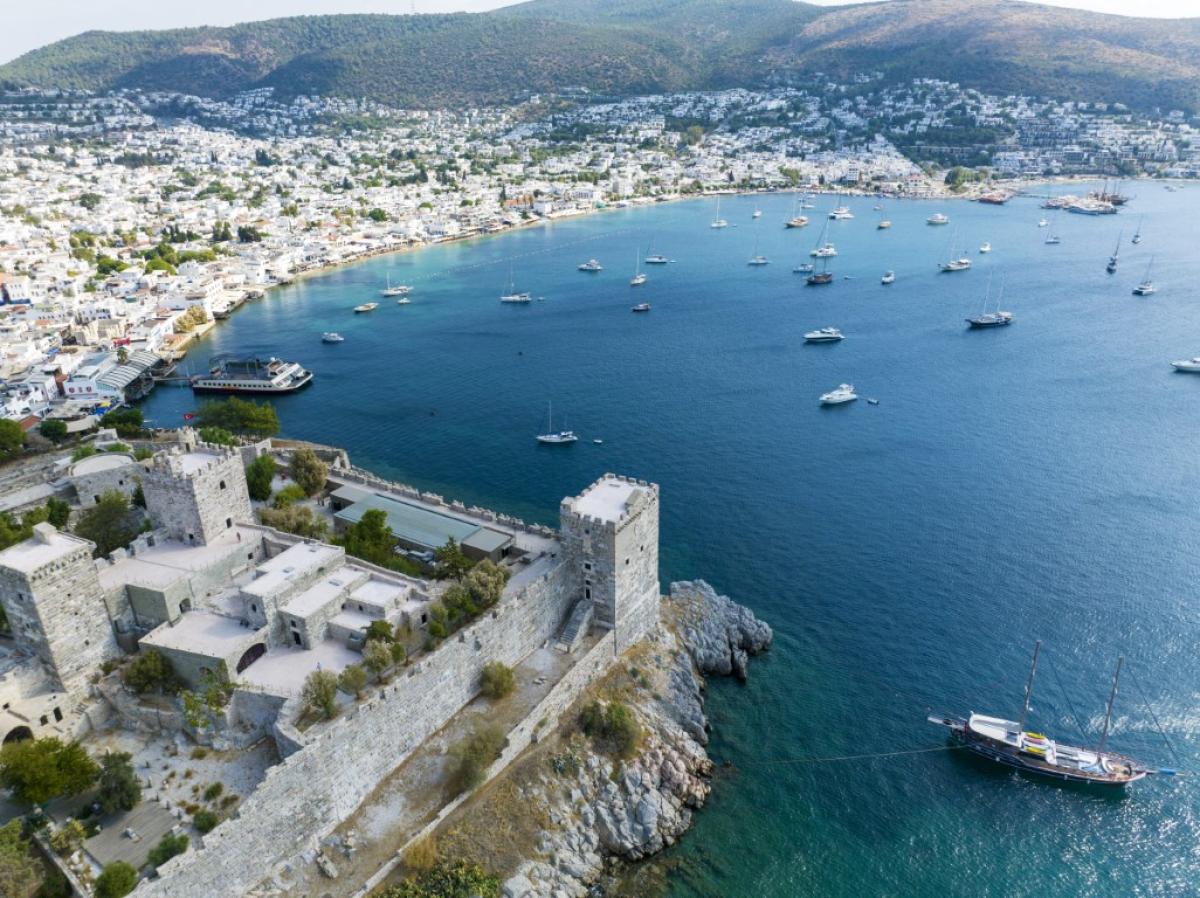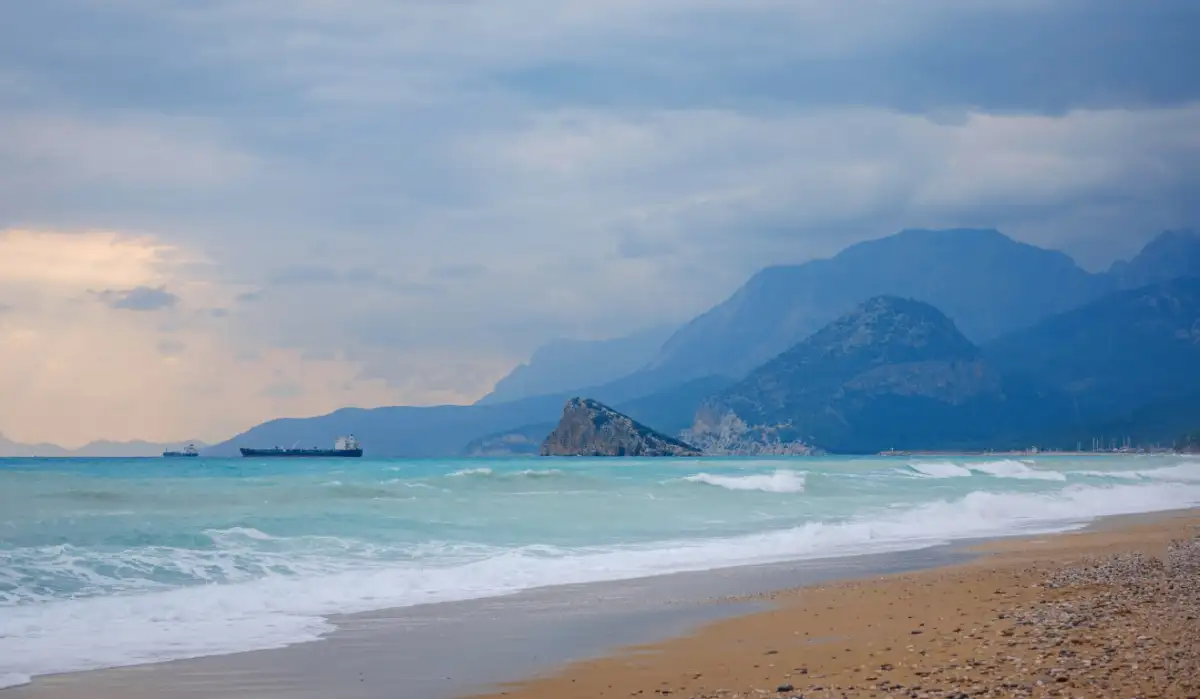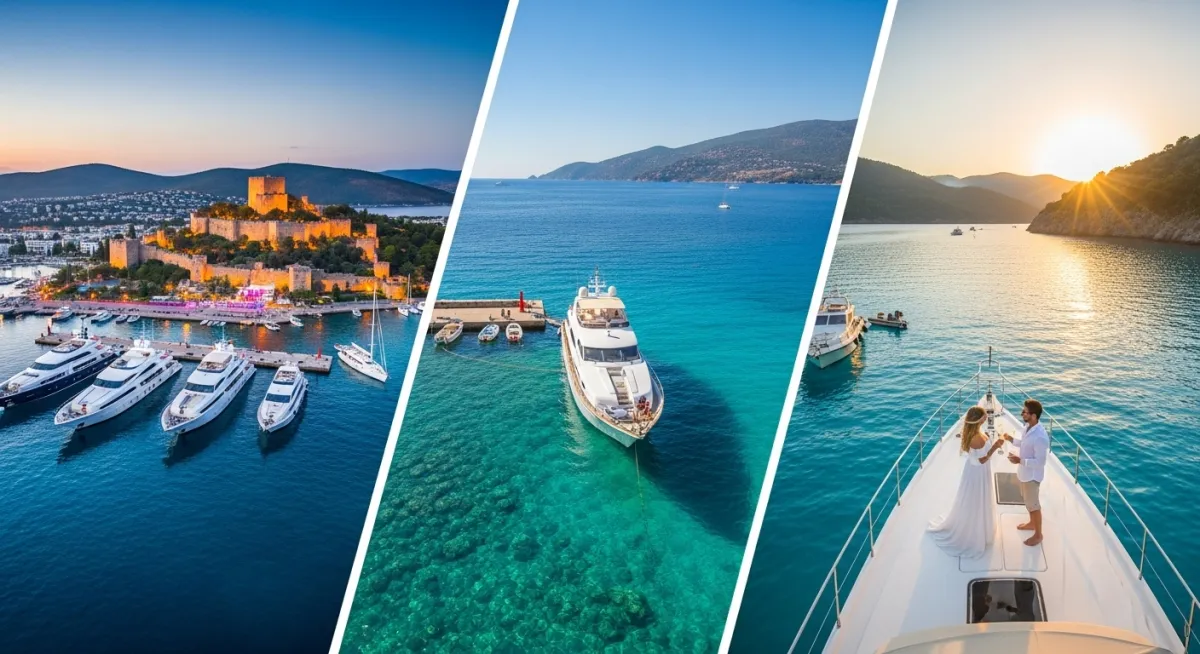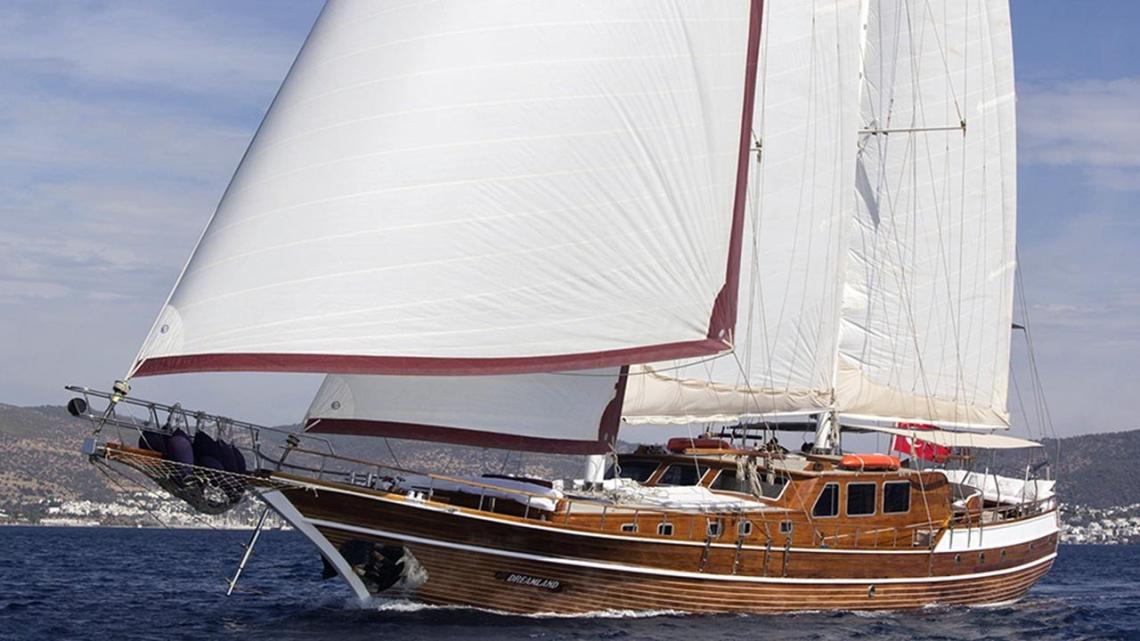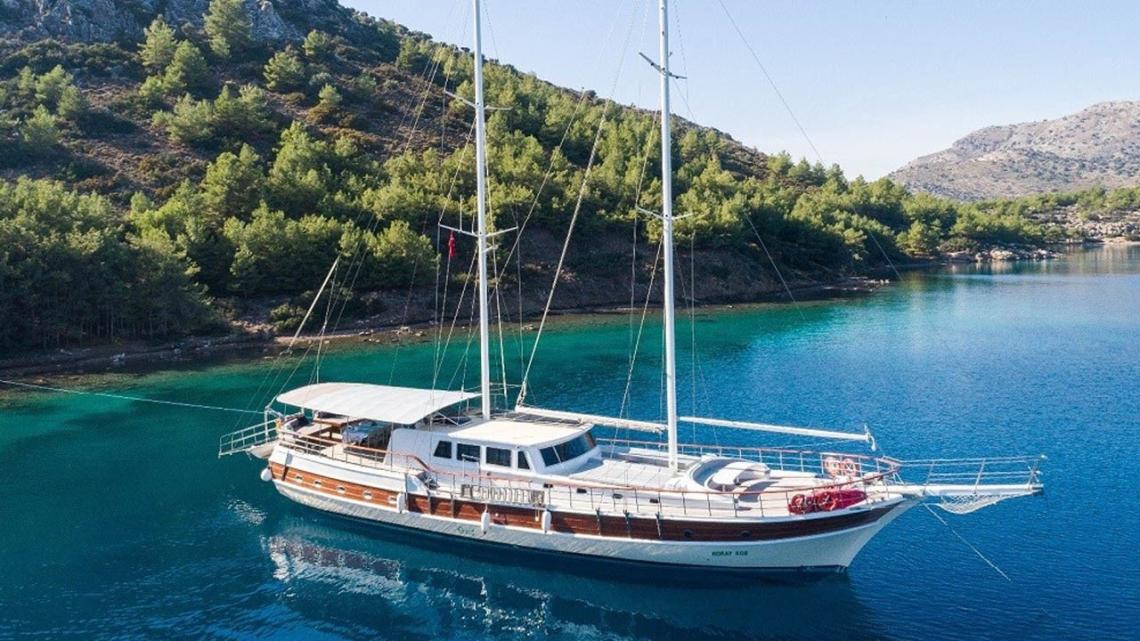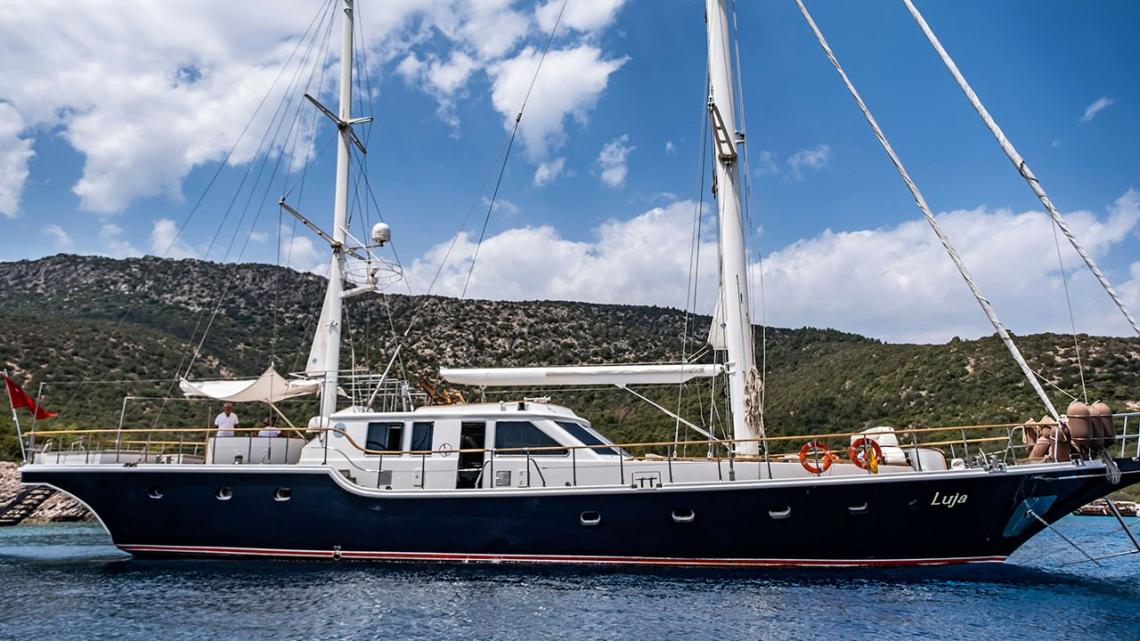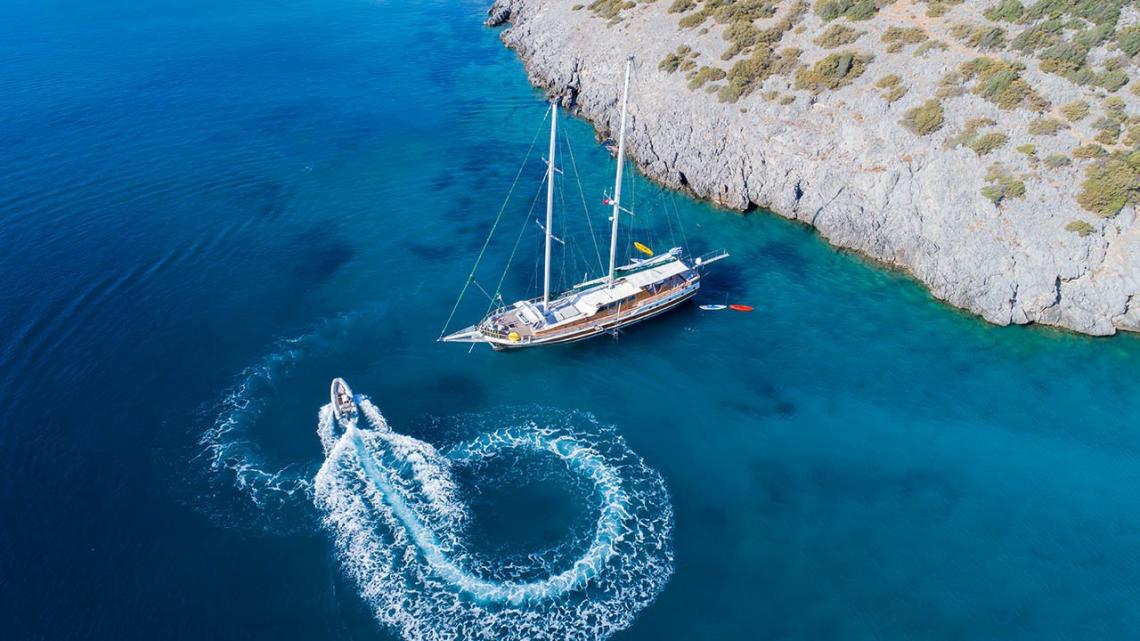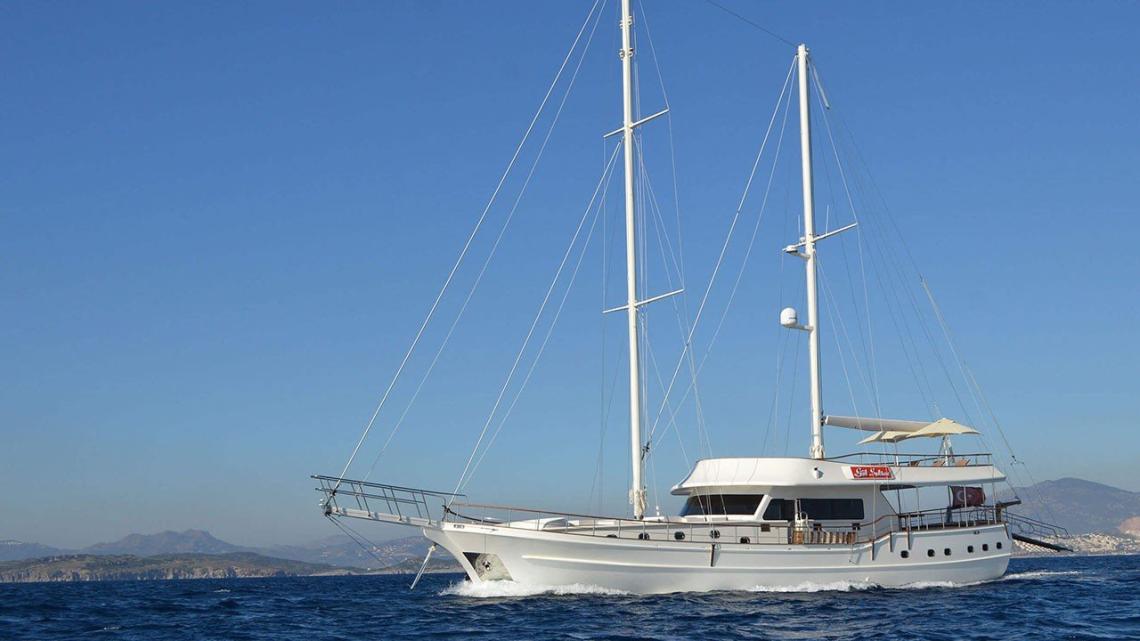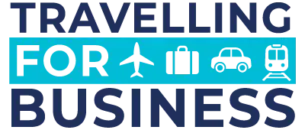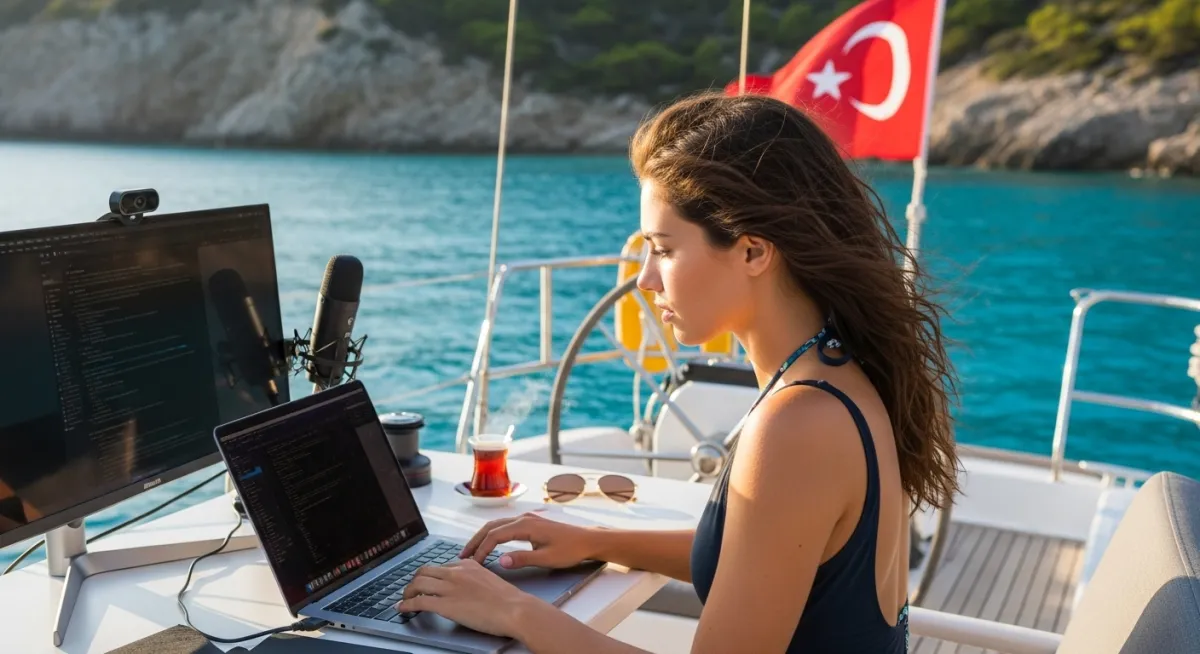
I want to work remotely from a digital nomad sailboat. Can this really work? Yes! Turkey makes this dream real.
Sarah from Reddit lived on her sailboat for 3 years. She made $4,000 per month as a web developer. Her boat was her office. Her view changed every week.
Digital nomad sailing works when you plan right. You need internet. You need power. You need workspace. This guide shows you exactly how to do it.
Turkey has warm water. The cost is low. Internet works great near the coast. You can sail and work at the same time.
Why Turkey Beats All Other Countries
Tom spent 2 years sailing Europe. He says Turkey is the best place for boat office life. Here's why:
Turkey costs less:
- Marina fees: $200-400 per month
- Food costs: $300 per month
- Internet: $30-50 per month
- Total monthly cost: $600-800
Europe costs more:
- Marina fees: $800-1200 per month
- Food costs: $600 per month
- Internet: $80-120 per month
- Total monthly cost: $1500-2000
You save $900 every month in Turkey. That's $10,800 per year.
Sail Turkey Remotely?
Get insider tips on remote work sailboat charters
The cost of living on a digital nomad sailboat in Turkey is 60% less than Europe. Location independent workers keep more money.
Turkey sits between Europe and Asia. You can talk to US clients in the evening. You can call European clients in the morning. The time zone works for everyone.
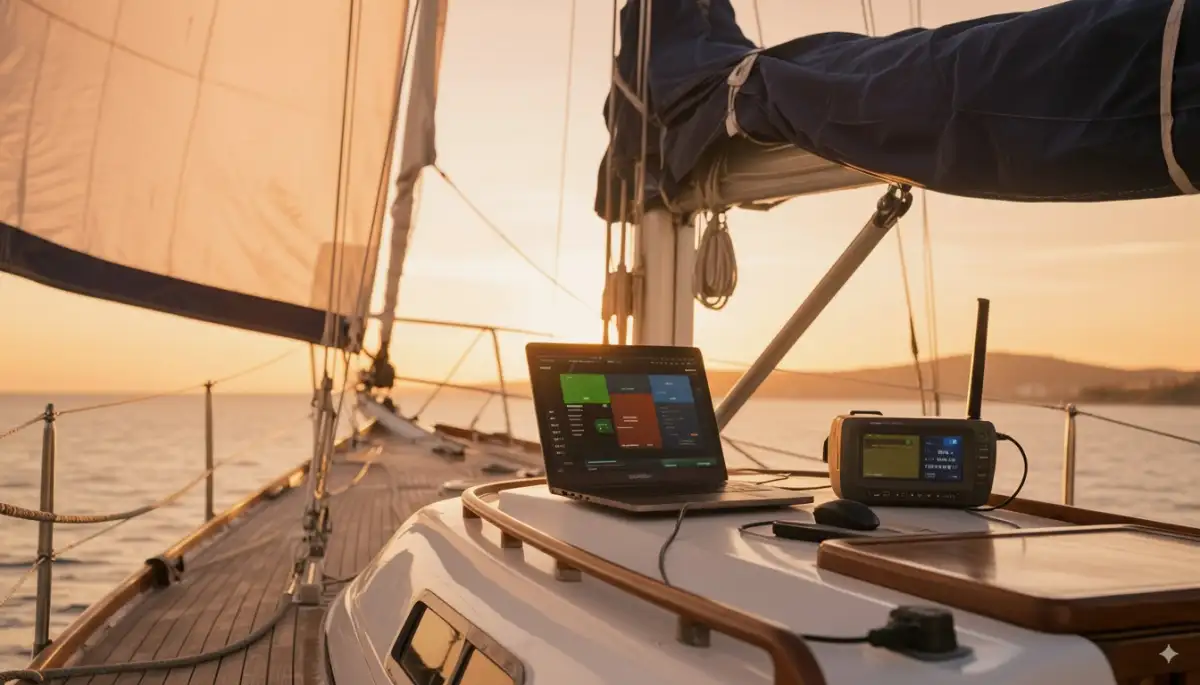
Real Internet Speeds You Can Expect
Jake tested internet in 12 Turkish ports. Here are his real results:
| Port City | 4G Speed | 5G Speed | Cost Per Month | Works for Video Calls |
|---|---|---|---|---|
| Bodrum | 45 Mbps | 85 Mbps | $35 | Yes |
| Marmaris | 40 Mbps | 78 Mbps | $30 | Yes |
| Göcek | 35 Mbps | 65 Mbps | $25 | Yes |
| Antalya | 50 Mbps | 95 Mbps | $40 | Yes |
| Kaş | 25 Mbps | 45 Mbps | $25 | Sometimes |
Best setup for work remotely:
- Primary: Turkish 5G SIM card
- Backup: Starlink satellite internet
- Emergency: Marina WiFi
Most people use Turkcell or Vodafone. Both work great for remote work. Get unlimited data plans.
Starlink costs $120 per month. It works everywhere. Use it when sailing digital routes away from coast.
Power Setup That Actually Works
Lisa ran her graphic design business from a 35-foot sailboat. Her power setup never failed:
Solar power system:
- 4 x 100W solar panels = 400W total
- Cost: $800
- Powers laptop 8 hours daily
- Charges phone and router
Battery system:
- 4 x 100Ah lithium batteries = 400Ah total
- Cost: $2,400
- Lasts 3 days without sun
- Runs laptop and internet gear
Power converter:
- 2000W inverter
- Cost: $300
- Changes 12V to 220V
- Runs all computer equipment
Shore power:
- 30A cable and adapter
- Cost: $150
- Plugs into marina power
- Charges batteries fast
Total power system cost: $3,650. It pays for itself in 6 months of marina savings.
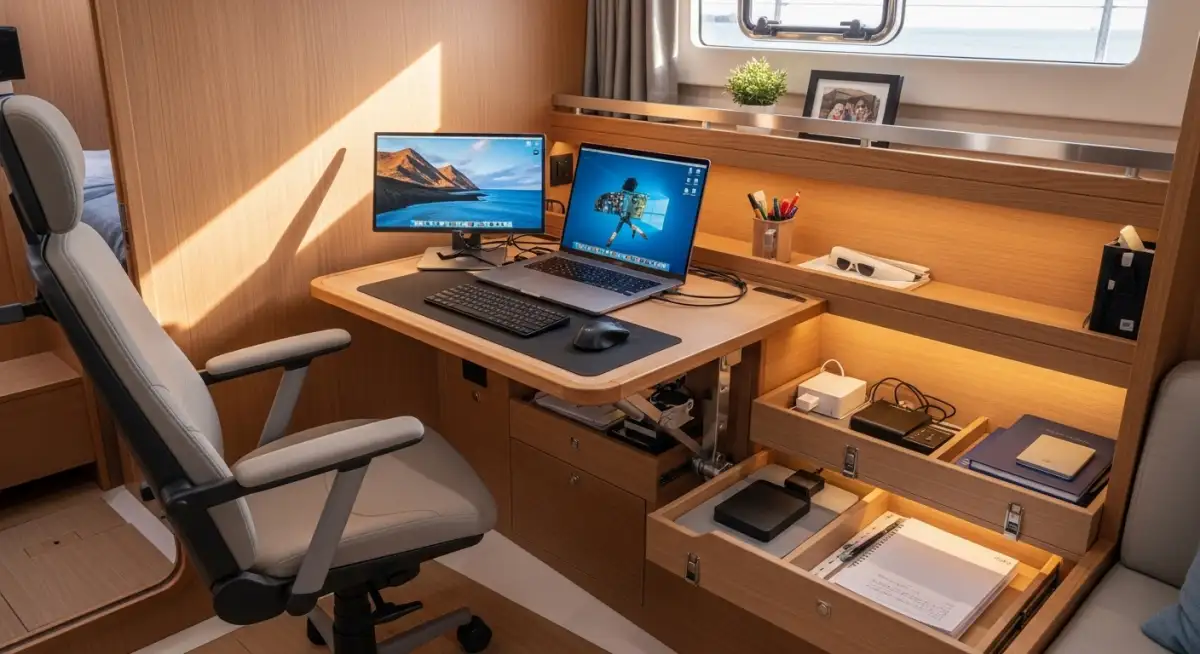
Your Boat Office Setup Step by Step
Mark worked as a virtual assistant for 4 years from his sailboat. His office setup fits in 6 square meters:
Step 1: Pick your workspace
- Use the main salon table
- Face forward for better balance
- Sit near a window for natural light
- Keep the galley counter clear for equipment
Step 2: Make it steady
- Add non-slip mats under laptop
- Use a laptop stand that clamps down
- Install cup holders that won't spill
- Put shock cord around table edges
Step 3: Add proper lighting
- Install 3 LED strip lights overhead
- Add a desk lamp that moves
- Use warm white LEDs (3000K)
- Avoid blue light after sunset
Step 4: Control temperature
- Install 12V fans for air flow
- Use window covers for shade
- Add a small heater for winter
- Keep vents open for fresh air
Cost breakdown:
- Desk setup: $200
- Lighting: $150
- Climate control: $300
- Total: $650
This working space converts back to dining area in 2 minutes.
Equipment That Survives Salt Water
Electronics break fast on boats. Here's what actually lasts:
Laptop protection:
- Waterproof case: Pelican 1470 ($180)
- Corrosion spray: CRC Marine ($15)
- Backup hard drive: Sealed SSD ($120)
- Total protection cost: $315
Communication gear:
- Waterproof phone case ($25)
- VHF radio for emergencies ($150)
- Backup phone in sealed bag ($15)
- Extra charging cables ($40)
Internet equipment:
- Router in waterproof box ($200)
- External antenna for better signal ($80)
- Power bank for router ($60)
- Backup mobile hotspot ($50)
Storage solutions:
- Dry bags for cables ($30)
- Tool box for adapters ($25)
- Wall mounts for equipment ($40)
- Shock-proof cases ($60)
Buy everything in duplicate. Salt air kills electronics. Always have backups ready.
Time Management That Works
Emma manages 15 US clients from her sailboat. Her schedule never changes:
Daily routine:
- 6:00 AM: Check weather and emails
- 7:00 AM: Coffee and trip planning
- 8:00 AM: First client calls (US East Coast)
- 12:00 PM: Lunch break and swim
- 1:00 PM: Setting sail to next anchorage
- 3:00 PM: Drop anchor and work
- 4:00 PM: Second client session (US West Coast)
- 6:00 PM: Finish work and cook dinner
- 8:00 PM: Free time and socializing
The time zone in Turkey helps full time remote workers. You finish work early. You have long evenings free.
Client communication rules:
- Set specific call times
- Use calendar scheduling tools
- Always confirm the day before
- Have backup communication methods
- Never schedule calls while sailing
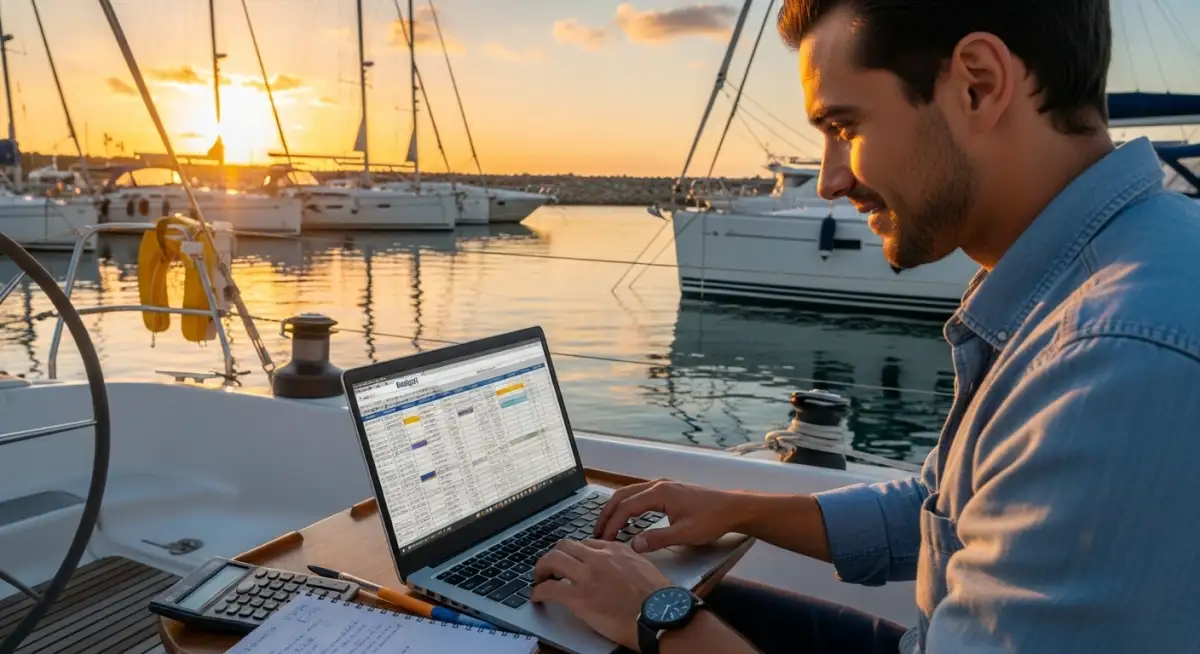
Real Costs From Real People
Here are actual monthly budgets from 5 sailboat workers:
| Expense | Basic Approach | Comfort Level | Luxury Lifestyle |
|---|---|---|---|
| Marina fees | $150 | $300 | $500 |
| Food | $200 | $350 | $600 |
| Internet | $45 | $65 | $120 |
| Fuel | $100 | $150 | $250 |
| Repairs | $80 | $120 | $200 |
| Insurance | $60 | $80 | $150 |
| Fun money | $100 | $200 | $400 |
| Total | $735 | $1,265 | $2,220 |
Alex lives simple. He anchors most nights. He cooks his own food. He earns $2,500 per month. He saves $1,765 monthly.
Maria wants comfort. She stays in marinas often. She eats out sometimes. She earns $4,000 per month. She saves $2,735 monthly.
David lives luxury. He stays in nice marinas. He eats at restaurants. He earns $8,000 per month. He saves $5,780 monthly.
All three save more money than living on land.
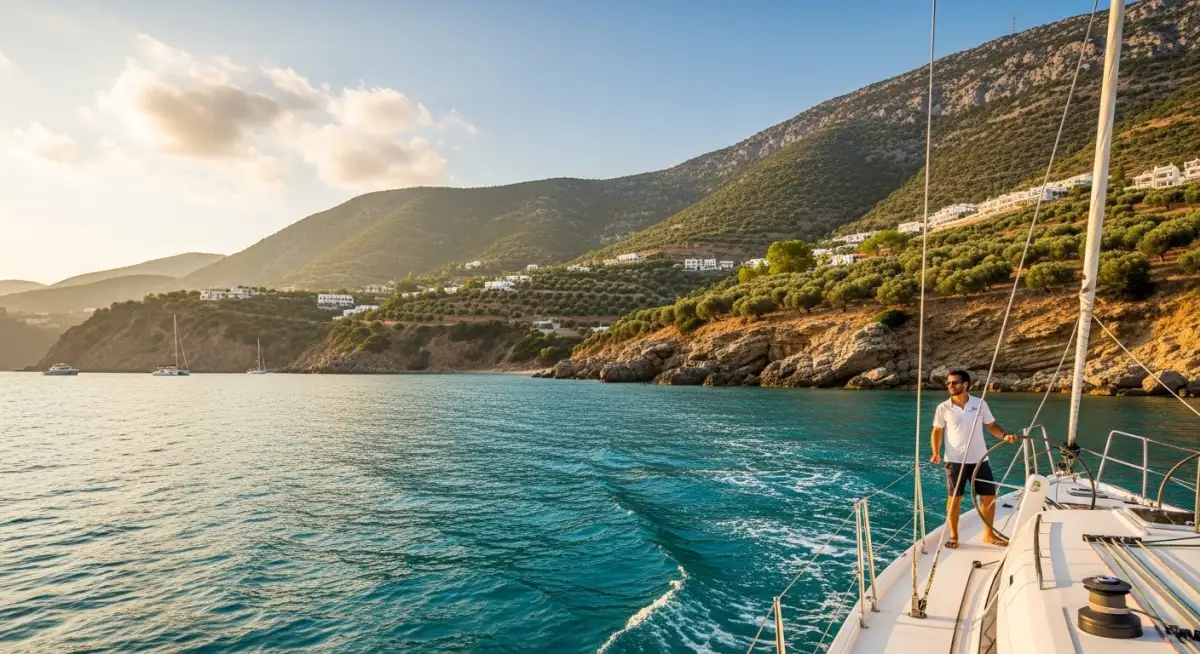
Turkish Sailing Routes for Digital Nomads
Route 1: Aegean Coast (Best for beginners)
- Start: Bodrum
- Stop 1: Knidos (ancient ruins)
- Stop 2: Datça (quiet fishing village)
- Stop 3: Marmaris (big marina, fast internet)
- Stop 4: Göcek (luxury marina, expat community)
- Distance: 120 nautical miles
- Time: 2-3 weeks
Route 2: Mediterranean Coast (More adventure)
- Start: Antalya
- Stop 1: Kaş (diving and culture)
- Stop 2: Demre (historical sites)
- Stop 3: Finike (fruit markets)
- Stop 4: Olympos (backpacker scene)
- Distance: 90 nautical miles
- Time: 2 weeks
Route 3: Gulet charter experience Try a gulet charter first. These traditional boats have crew. You focus on work. They handle sailing. Perfect for testing the lifestyle.
Luxury yacht charter options include internet setup and office space. Sailing charter turkey companies offer monthly deals for digital nomads.
Most routes have 4G signal within 5 miles of coast. Plan your sailing digital route around internet coverage maps.
Safety and Emergency Prep
When a sailboat lost power during a storm, having a comprehensive emergency plan proved essential for maintaining both safety and business continuity:
Communication backup plan:
- VHF radio (Channel 16 for help)
- Satellite emergency beacon
- Mobile phone with international plan
- Starlink for internet emergency
- Written contact list (waterproof)
Equipment backup plan:
- Second laptop in waterproof case
- Power bank that lasts 8 hours
- Manual backup for all passwords
- Printed client contact information
- USB drive with all important files
Weather monitoring:
- Check forecast 3 times daily
- Use multiple weather sources
- Never sail in small craft warnings
- Have 48-hour weather data always
- Plan work around weather windows
Safety equipment:
- Life jackets for everyone aboard
- Flares that work when wet
- First aid kit with trauma supplies
- Fire extinguisher in cabin
- Emergency food for 5 days
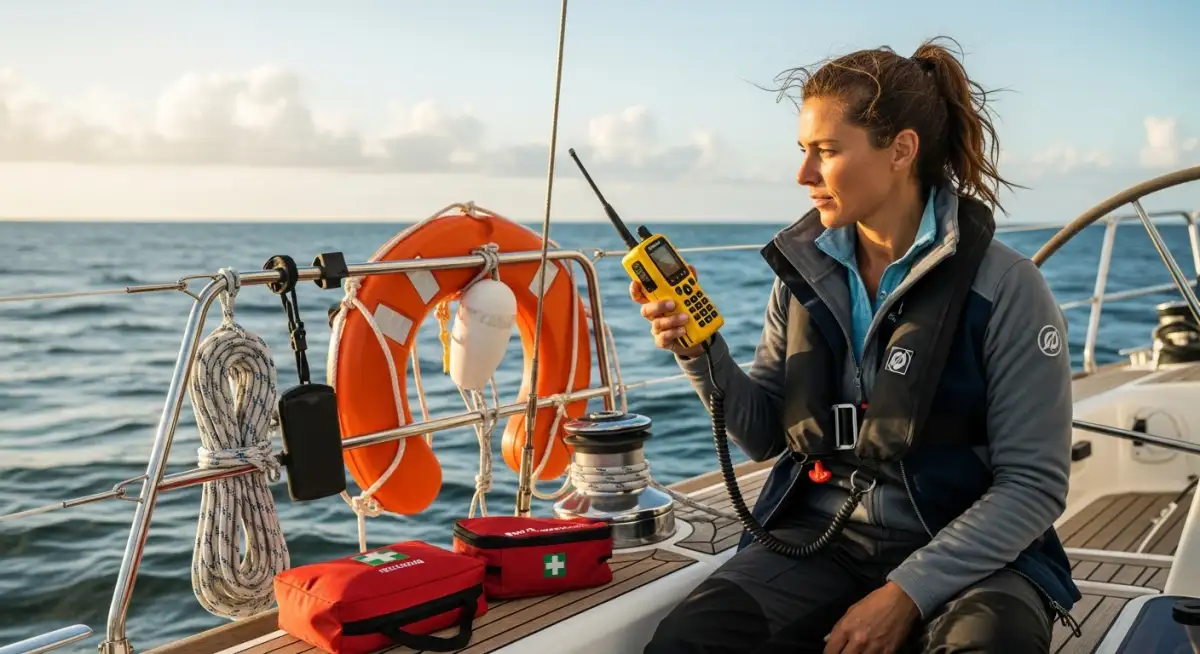
Digital Nomad Community in Turkey
The sailing community in Turkey welcomes remote workers. You meet people every day.
Where to find other nomads:
- Marina bars and restaurants
- Sailing club social events
- Facebook groups for sailors
- Coworking spaces in port cities
- Beach clubs and cafes
Popular Facebook groups:
- "Turkey Sailing Community" (2,400 members)
- "Digital Nomads Turkey" (8,100 members)
- "Bodrum Expats and Visitors" (12,000 members)
- "Marmaris International Community" (5,600 members)
Networking opportunities: Wednesday evening dinners at Göcek marina bring together international sailing professionals, while Friday drinks at Bodrum Marina create casual business connections. Sunday morning coffee gatherings in Marmaris foster community building, monthly sailing club races provide competitive networking, and beach cleanup volunteer events demonstrate environmental consciousness while meeting like-minded individuals.
Many graphic design professionals, programmers, and consultants discover new clients through marina connections. The sailing community values skilled individuals, often leading to unexpected business partnerships and collaborative opportunities.
Seasonal Planning Guide
Spring (March-May): Perfect for starting
- Weather: Warm days, cool nights
- Wind: Light to moderate
- Cost: Low season marina rates
- Crowds: Few tourists
- Work conditions: Excellent
Summer (June-August): Busy but good
- Weather: Hot and dry
- Wind: Strong afternoon winds
- Cost: High season rates (double)
- Crowds: Very busy anchorages
- Work conditions: Hot but manageable
Fall (September-November): Best overall
- Weather: Warm water, perfect temperatures
- Wind: Reliable but not too strong
- Cost: Shoulder season rates
- Crowds: Moderate
- Work conditions: Perfect
Winter (December-February): Marina season
- Weather: Mild but rainy
- Wind: Strong storms possible
- Cost: Very low marina rates
- Crowds: Only locals
- Work conditions: Marina office work
Plan your high quality work projects for spring and fall. Use summer for networking and exploration.
Getting Started Tomorrow
Week 1: Test the concept
- Charter a sailboat for one week
- Bring your work equipment
- Test internet connections
- Try working while anchored
- Check if you like the motion
Week 2: Learn basic skills
- Take a sailing course
- Learn anchoring techniques
- Practice radio communication
- Study weather forecasting
- Get comfortable with boat systems
Month 1: Find your boat
- Buying a boat budget: $30,000-100,000
- Look for boats 32-42 feet long
- Check electrical systems first
- Inspect hull and rigging
- Get marine survey before buying
Month 2: Set up systems
- Install solar panels and batteries
- Add internet equipment
- Create workspace
- Test all systems
- Take shakedown cruise
Month 3: Start your adventure
- Move aboard gradually
- Keep land backup for 3 months
- Start with short trips
- Build confidence slowly
- Join sailing community
Equipment Shopping List
Essential electronics:
- Laptop with long battery life ($800-1500)
- Backup laptop or tablet ($300-800)
- Mobile hotspot device ($100-200)
- Waterproof phone case ($25-50)
- External hard drive ($80-150)
Power equipment:
- Solar panels 400W+ ($600-1000)
- Lithium batteries 400Ah ($2000-3000)
- Inverter 2000W+ ($250-400)
- Battery charger/monitor ($200-300)
- Shore power cable ($100-150)
Communication gear:
- VHF radio ($150-300)
- Satellite communicator ($200-400)
- External antenna ($50-100)
- Radio license course ($50)
Safety equipment:
- Life jackets ($80-150 each)
- Emergency beacon ($250-400)
- Flares and signals ($100-200)
- First aid kit ($50-100)
- Fire extinguisher ($40-80)
Total startup cost: $5,500-9,000
This covers everything needed for safe, productive life aboard a sailboat.
Making It Profitable
Your floating workspace can actually increase your income potential:
Advantages you gain:
- Reduced living expenses = higher profit margins
- Unique location = premium rates from clients
- Time zone flexibility = expanded client options
- Travel experiences = additional service offerings
- Network effects = referrals from sailing community
Services that perform excellently:
- Virtual assistant work (timezone advantages)
- Web development (clients appreciate the unique story)
- Content creation (amazing photos and experiences)
- Online consulting (professional yet distinctive)
- Digital marketing (global perspective)
Income enhancement strategies:
- Charge 20-30% premium for "location independence"
- Offer travel and cultural consulting services
- Create sailing and nomad content
- Network at international marinas
- Partner with other sailing professionals
Many successful sailboat nomads earn more than they did on land. The key is marketing your unique situation as an advantage.
Your Next Steps Start Now
Digital nomad sailing in Turkey offers excellent potential for work success and life adventure, but requires careful preparation and realistic expectations.
Recommended progression:
- Month 1: Take sailing lessons and obtain basic certification
- Month 2: Charter a boat in Turkey for 1-2 weeks to test the concept
- Month 3: Complete longer charter (3-4 weeks) to evaluate extended productivity
- Month 6: Consider seasonal charter or boat purchase after gaining experience
Start with charter experiences to minimize risk and maximize learning. Sailing charter turkey companies offer digital nomad-focused packages that include workspace setup and internet configuration. This approach allows testing your work routine, client communication patterns, and personal adaptation without major financial commitment.
Gulet charter experiences provide crew support while maintaining professional privacy. Luxury yacht charter options offer premium amenities and technical support during the learning phase.
The Turkish coast welcomes remote workers with excellent infrastructure and supportive communities. Marina networks provide reliable business environments while coastal sailing offers adventure and inspiration.
Your floating office journey begins with education, continues with experience, and succeeds through preparation. Turkey's blue waters await your carefully planned adventure in living and working at sea.
Take the first step: book a charter experience and discover if the digital nomad sailing lifestyle matches your professional and personal goals.
References
- MBO Partners - "2024 Digital Nomads Trends Report: Nomads are Here to Stay" https://www.mbopartners.com/state-of-independence/digital-nomads/
- Starlink - "Maritime Internet Connectivity Solutions for Professional Use" https://www.starlink.com/business/maritime
- All About Turkey Tourism Authority - "Boat Regulations in Turkish Waters: Official Guidelines" https://www.allaboutturkey.com/boat-rules.html
- Peplink Technology - "Marine Internet Connectivity Solutions for Yachts" https://www.peplink.com/case-studies/luxury-super-yachts-connectivity/
- Turkish Council Immigration Services - "Turkey Digital Nomad Visa and Maritime Protocols 2024" https://www.turkishcouncil.org/setting-sail-with-confidence-mastering-turkeys-visa-protocols-for-yacht-and-boat-voyages/



